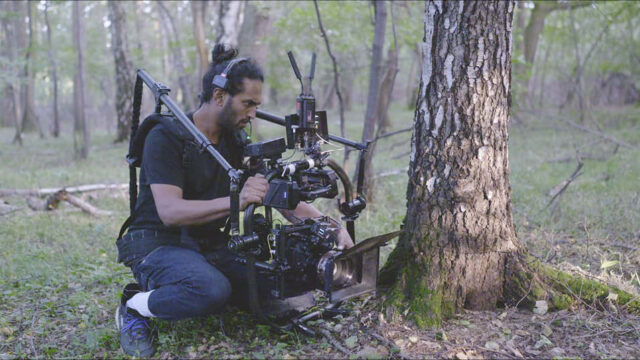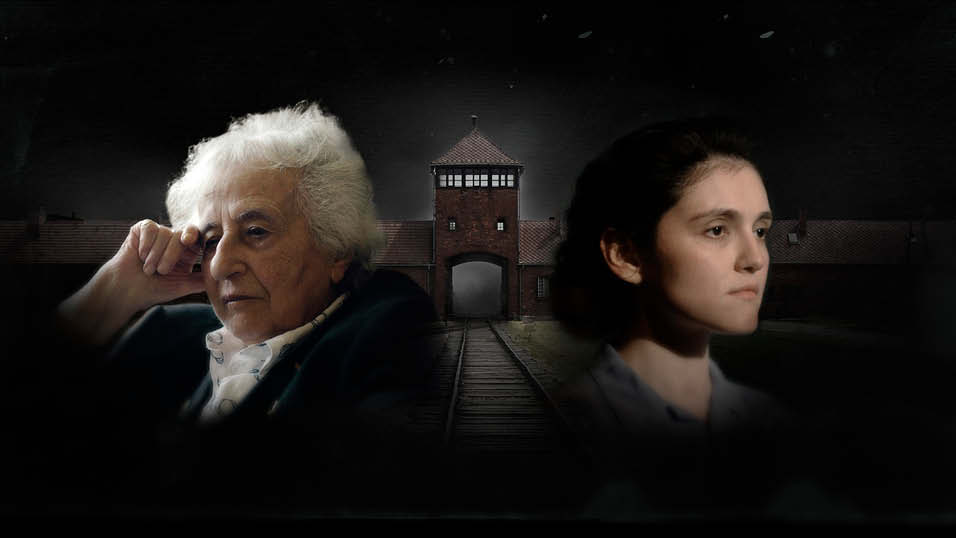Toby Trackman, Director of upcoming feature doc The Last Musician of Auschwitz, produced by Two Rivers Media for the BBC and Access, explains how the film was created with the aid of vintage lenses made by Lore Sternfeld, a German jew murdered at the death camp.

Working on The Last Musician of Auschwitz with Two Rivers Media, for the BBC and Access, has been one of the most profound experiences of my career. Being given permission to film the musical performances for this BBC feature-length documentary around the Auschwitz camp was a real privilege, and we felt a huge sense of responsibility to not only ensure that the shoots were conducted with sensitivity and operated within the agreed parameters, but perhaps more, a responsibility to make sure that the set-ups honoured the stories, setting and history.

We sought to find a balance between creativity and sensitivity; we needed to ensure that the artists felt empowered to give their best, and that we could record their performances effectively on location whilst making them look and feel special in a way that enhanced, rather than distracted from, the setting and emotion.
One of the ways we achieved this was behind the scenes; each performance was filmed using vintage lenses engineered by someone who was murdered there; a German Jew called Lore Sternfeld.
A trained engineer, Lore lived in Berlin where she worked for the Astro Company, manufacturers of lenses for scientific photography and cinema cameras. The Nazis used their products for reconnaissance, while in America their Astro Berliner Pan-Tachar cine-lenses were used on Citizen Kane.

During the Nazi regime, Lore Sternfeld worked on the lenses under house arrest. After her transportation to Auschwitz and murder there in 1943, the Astro Company wrote to the local Nazi finance office demanding the return of the Pan-Tachar lenses she’d been working on. A copy of this letter still exists today.
The lenses fell out of use and eventually made their way to No.9 Optics in London who set about rehousing them for use with modern cameras. The re-engineering was completed in 2024, and during the process the team at No.9 Optics started researching their history.

Amazingly, the story of Lore Sternfeld and her murder Auschwitz, only came to light in the week before filming on The Last Musician started at the camp.
Illness meant I needed to find a director of photography at short notice. A chance recommendation connected me with DoP Ricky Patel, who had been collecting the lenses before passing them to No.9 Optics for rehousing. Incredibly, it was actually during our first phone call that an email landed in Ricky’s inbox revealing the Sternfeld family history, connecting the lenses, Lore, and Auschwitz together for the first time.

Using the lenses for the performances at the camp added an viscerally poignant element to the filming. They have a unique look; soft, swirly, and prone to colourful flaring, they are not what you would imagine as the first choice for a film about Auschwitz as they are more naturally a choice for a romantic subject. And yet, there was undoubtedly something romantic and evocative about using the lenses made by Lore, and inscribed in dedication to her, at the camp. It was as close as we could ever come to seeing Auschwitz directly through the eyes of a real person who had been there and witnessed its horrors. Using Lore’s lenses was an act of remembrance and defiance; 80 years later the music of victims is still being performed, recorded with tools made by the very people the Nazis were trying to wipe out.

Each performance was its own intensely emotional moment; incredible music being performed by world class artists against the most horrific of backdrops. For many on the team, one of the set-ups that hit us the most was the night we installed a grand piano outside the house of Commandant Höss, the subject of the film The Zone of Interest. Filming at night in the backyard of the house, at the base of the wall to the camp, felt like a powerful reclamation of the space. The emotion on location that night was overwhelming and I’m sure I can speak for everyone involved in saying that it truly was an experience that we shall never forget.
The Last Musician of Auschwitz will be broadcast on the BBC on 27 January to coincide with the 80th anniversary of the liberation of Auschwitz. The film is distributed internationally by Sphere Abacus.
Jon Creamer
Share this story

















